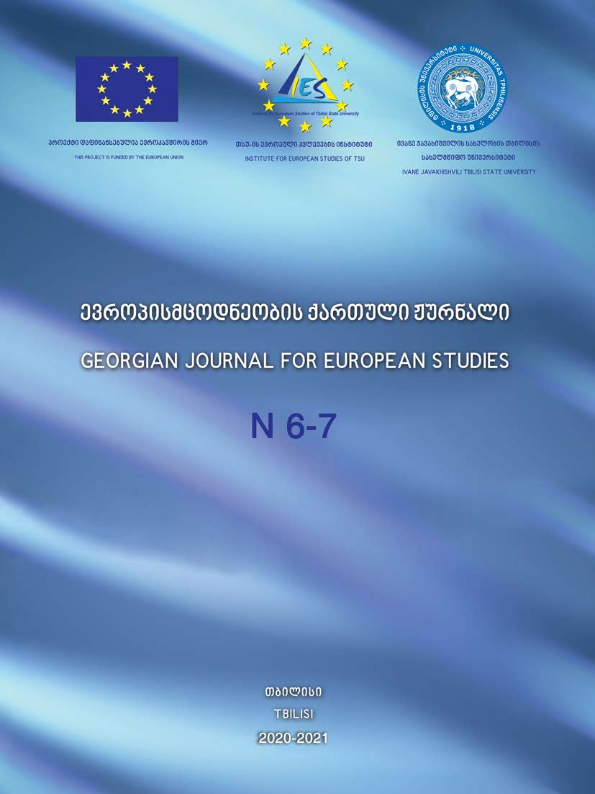GREENLAND’S WITHDRAWAL FROM THE EUROPEAN ECONOMIC COMMUNITY:CONSTRUCTIVIST ANALYSIS OF DECISION-MAKING ON GOVERNMENTAL AND SOCIETAL LEVELS
Keywords:
Greenland, Brexit, EU, Withdrawal, Securitization.Abstract
The purpose of this article is to identify and explain the rationale behind Greenland’s decision to leave the European Economic Community. The reasoning follows the two-levelled analysis of decision-making: governmental and societal. Based on the Process Tracing of Greenland’s way to the self-determination and Discourse Analysis of the 1982 pre-referendum campaign, the article affirms that the interest of the autonomy expansion backed by the plan of economic well-being outside the Community encouraged the governmental decision, while on the societal level, the interest of preserving Greenlandicness against Eu- ropeanization is claimed to have been decisive. Findings are simultaneously interpreted according to Alex- ander Wendt’s National Interest categories of autonomy, economic well-being and collective self-esteem to conclude that the withdrawal from the Community was a reverberation of Greenland’s national inter- ests in their Constructivist sense. As a complement to Wendt’s conceptualization of National Interests, Weaver’s Securitization Theory is used as a theoretical tool for analysing the pre-referendum campaign as a securitization act. It is argued that the government directed Greenlanders’ Collective self-esteem against the EEC membership and thus constructed the societal security threat out of a purely political issue.


